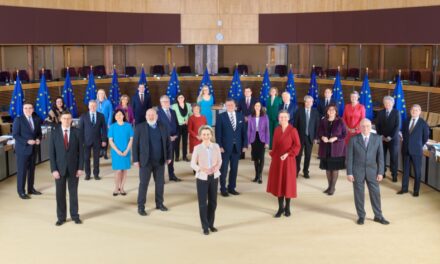So now everyone guess which group across Europe was at the top in worldview-based judgment and hatred!
The Constitutional and Democracy Research Center of the otherwise unimpressive Dresden University of Technology published a very exciting study: twenty thousand people in ten European countries, including Hungary, were asked for their opinions on all kinds of topics, from immigration to the war in Ukraine and climate change to sexual minorities, and then the respondents had to say how they relate to their fellow human beings who hold different opinions on the given topic . How much they despise or not those who look at the world differently.
So now everyone guess which group across Europe was at the top in worldview-based judgment and hatred: the far-right? Or the conservatives? Maybe the social media? The liberals? Or others?
At this point, for example, those who have the latest "I deleted you from my Facebook page because you went to Tusványos" hysterics are in the right place: well, yes, unfortunately, the greens and the leftists. They gave the highest sympathy score to those who think the same as them and the lowest to those with different opinions, to whom their attitude - according to their own admission - is "cold and very negative". based on all these
Across Europe, 28 percent of those with left-wing sentiments are classified as strongly emotionally polarized, while only 19 percent of those with right-wing sentiments are.
The topic of migration is the only one where the right competes with the left in terms of the intensity of emotions; at the same time, according to the survey, this is the issue that most divides the whole of Europe - in the light of which everyone can consider who is more intensively undermining the project of European unity (as well as the Union): is it the one who warns of the social danger of migration from the beginning, or perhaps the one who keeps the issue on the agenda with wirschaffendas and quotas dictated from above and tempers have been burning for almost a decade. Especially considering that, according to the survey, 55 percent of respondents across Europe more or less vehemently advocate limiting immigration (65 percent in the Netherlands and East Germany, 64 percent in Sweden, 67 percent in the Czech Republic), and only 3 percent would consider easing immigration to be absolutely important.
In addition, the investigation records it with very exact figures: highly educated, high-income citizens living in the big city are less accepting than the average of those with different opinions. It's not as if this hasn't already been clear to stupid, manure-fed mushrooms, but maybe if a German university says it, even the young of the moment will believe it better: you shouldn't reprogram your grandmother's TV, but listen to the arguments of the pious countryman with an open heart and an inquiring eye - social cohesion would already be strengthened.
Although it is possible to get stuck on certain details (among the Hungarian parties, apart from Fidesz and Mi Hazánk, only the Mendki Magyarországa Mozgalom is included in the survey, so to speak as the leader of the opposition coalition, MZP likes this), the aggregated data reveals:
Hungary, which is considered extremely divided, is actually just as polarized as Germany.
The expert camp logic is by far the largest in Italy among the countries examined - let's take it so seriously from now on when any Hungarian citizen makes a living from his rental property in Umbria.
However, the data related to the war in Ukraine are particularly instructive. On the scale, one end point of which is "restriction of aid to Ukraine, to avoid negative consequences (e.g. price increases)" and the other is "further support for Ukraine, despite the negative consequences", 19 percent already in the autumn 2022 data collection largely agreed with the withdrawal of aid, while 14 percent were firmly in favor of continuing the aid. The relative majority (21 percent) took a completely neutral position (or, given the mainstream, did not even admit to themselves which direction they were leaning towards); thus, overall, those advocating the continuation of the support remained in the minority. The European Parliament, which, as the alleged voice of the EU citizens, meanwhile "calls on" the member states in resolutions and "expects" from them an ever-increasing amount of military, economic and financial support, should not be too surprised if, after next year's elections, an AfD politician is accidentally found in Daniel Freund's place.
Because while all decent people deeply criticize the Hungarians for their "Putin support", the East Germans and the Czechs are actually the most opposed to supporting Ukraine at all costs; the Hungarians would only prefer the prevention of negative economic consequences to the same extent as the Greeks (51 and 50 percent, respectively).
But similar prejudices can be destroyed if we look at the degree of emotional polarization related to sexual minorities: within the ten countries examined, the division in this field is above average in Italy, Spain and Germany, while in Hungary it is below average; moreover, in terms of worldview, throughout Europe, Christian Democrats, conservatives and right-wingers are the most relaxed on this issue, while those who declare themselves to be left-wing or green have an exceptionally bad opinion of those who do not share their position regarding the need for further large-scale sensitization.
The German researchers who wrote the study also point out:
a tense attitude at this level threatens the foundations of democracy due to the inability to dialogue and compromise.
We hope that some hard-working EP representative will already prepare the relevant report, in which he firmly calls on the European Greens and the left to effectively develop the capacity for tolerance as soon as possible.
Source: Mandarin
Photo: Pixabay













